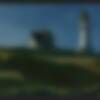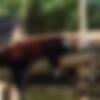Write a beautiful poem in your native language for reading and translate it into English if you can.
ای دوست بیا تا غمِ فردا نخوریم
وین یک دمِ عمر را غنیمت شمریم
فردا که ازین دیرِ فنا درگذریم
با هفتهزارسالگان سربهسریم
- عمر خیام
My friend, let us not worry about tomorrow
And know the value of our short life
Tomorrow if we leave this mortal world
We are no different from those who died thousands of years ago
- Omar Khayyam
Akrep gibisin kardeşim,
korkak bir karanlık içindesin akrep gibi.
Serçe gibisin kardeşim,
serçenin telaşı içindesin.
Midye gibisin kardeşim,
midye gibi kapalı, rahat.
Ve sönmüş bir yanardağ ağzı gibi korkunçsun, kardeşim.
Bir değil,
beş değil,
yüz milyonlarlasın maalesef.
Koyun gibisin kardeşim,
gocuklu celep kaldırınca sopasını
sürüye katılıverirsin hemen
ve âdeta mağrur, koşarsın salhaneye.
Dünyanın en tuhaf mahlukusun yani,
hani şu derya içre olup
deryayı bilmiyen balıktan da tuhaf.
Ve bu dünyada, bu zulüm
senin sayende.
Ve açsak, yorgunsak, alkan içindeysek eğer
ve hâlâ şarabımızı vermek için üzüm gibi eziliyorsak
kabahat senin,
- demeğe de dilim varmıyor ama -
kabahatın çoğu senin, canım kardeşim!
--Nazım Hikmet Ran
You're like a scorpion, my brother,
you live in cowardly darkness
like a scorpion.
You're like a sparrow, my brother,
always in a sparrow's flutter.
You're like a clam, my brother,
closed like a clam, content,
And you're frightening, my brother,
like the mouth of an extinct volcano.
Not one,
not five--
unfortunately, you number millions.
You're like a sheep, my brother:
when the cloaked drover raises his stick,
you quickly join the flock
and run, almost proudly, to the slaughterhouse.
I mean you're strangest creature on earth--
even stranger than the fish
that couldn't see the ocean for the water.
And the oppression in this world
is thanks to you.
And if we're hungry, tired, covered with blood,
and still being crushed like grapes for our wine,
the fault is yours--
I can hardly bring myself to say it,
but most of the fault, my dear brother, is yours.
Demain dès l'aube
"Demain, dès l’aube, à l’heure où blanchit la campagne,
Je partirai. Vois-tu, je sais que tu m’attends.
J’irai par la forêt, j’irai par la montagne.
Je ne puis demeurer loin de toi plus longtemps.
Je marcherai les yeux fixés sur mes pensées,
Sans rien voir au dehors, sans entendre aucun bruit,
Seul, inconnu, le dos courbé, les mains croisées,
Triste, et le jour pour moi sera comme la nuit.
Je ne regarderai ni l’or du soir qui tombe,
Ni les voiles au loin descendant vers Harfleur,
Et quand j’arriverai, je mettrai sur ta tombe
Un bouquet de houx vert et de bruyère en fleur."
Victor Hugo, extrait du recueil «Les Contemplations» (1856)
----
Tomorrow, at dawn, when the countryside whitens,
I will go. You see, I know you are waiting for me.
I will go through the forest, I will go across the mountains.
I cannot stay away from you any longer.
I will walk with my eyes fixed on my thoughts,
Without seeing anything outside, without hearing any noise,
Alone, unknown, back bent, hands crossed,
Sad, and the day for me will be like night.
I will not look at the gold of the falling evening,
Nor the sails in the distance descending towards Harfleur,
And when I arrive, I will put on your grave
A bouquet of green holly and flowering heather.
Victor Hugo, extract from "Les Contemplations" (1856)
A Poem by Faiz Ahmad Faiz
Translation: V.G. Keirnin
آ کہ وابستہ ہیں اس حسن کی یادیں تجھ سے
جس نے اس دل کو پری خانہ بنا رکھا تھا
جس کی الفت میں بھلا رکھی تھی دنیا ہم نے
دہر کو دہر کا افسانہ بنا رکھا تھا
آشنا ہیں تیرے قدموں سے وہ راہیں جن پر
اس کی مدہوش جوانی نے عنایت کی ہے
کارواں گزرے ہیں جن سے اسی رعنائی کے
جس کی ان آنکھوں نے بے سود عبادت کی ہے
تجھ سے کھیلی ہیں وہ محبوب ہوائیں جن میں
اس کے ملبوس کی افسردہ سی مہک باقی ہے
تجھ پہ برسا ہے اُس بام سے مہتاب کا نور
جس میں بیتی ہوئی راتوں کی کسک باقی ہے
تو نے دیکھی ہے وہ پیشانی،وہ رخسار،وہ ہونٹ
زندگی جن کے تصور میں لٹا دی ہم نے
تجھ پہ اٹھی ہیں وہ کھوئی ہوئی ساحر آنکھیں
تجھ کو معلوم ہے کیوں عمر گنوا دی ہم نے
عاجزی سیکھی،غریبوں کی حمایت سیکھی
یاس ع حرماں کے،دکھ درد کے معنی سیکھے
زیردستوں کے مصائب کو سمجھنا سیکھا
سرد آہوں کے رخ زرد کے معنی سیکھےتو نے دیکھی ہے وہ پیشانی،وہ رخسار،وہ ہونٹ
زندگی جن کے تصور میں لٹا دی ہم نے
Come, for memories of that beauty are connected to you
She who had made my heart a land of fantasy
In whose love I had forgotten the rest of the world
Had made a story of the world and time
Those pathways are familiar with your feet, upon which
She had bestowed with her intoxicated youth
From where caravans of that same beauty have passed
That these eyes worshipped without heed to all else
Those loving breezes have played with you, where
The gentle and sad perfume of her attire lingers
The light from her has also rained upon you from that terrace
In which lingers the sweet ache of nights past
You have witnessed that forehead, that aspect, those lips
In whose imagination I wasted away my life
Those lost magical eyes have been raised to meet yours
You know why I wasted my life pining
I learned of misery, helplessness, despair,
I learned to be the friend of suffering creatures,
I came to know the torment of oppressed,
The truth of sobbing breath and livid features
The gifts of the agony of love have been given to us equally
So many gifts that I couldn't count them if I tried
What we have lost and learnt through this love
I couldn't explain to any other even if I tried
...
君不见黄河之水天上来,奔流到海不复回。
君不见高堂明镜悲白发,朝如青丝暮成雪。
人生得意须尽欢,莫使金樽空对月。
天生我材必有用,千金散尽还复来。
烹羊宰牛且为乐,会须一饮三百杯。
岑夫子,丹丘生,将进酒,杯莫停。
与君歌一曲,请君为我倾耳听。
钟鼓馔玉不足贵,但愿长醉不愿醒。
古来圣贤皆寂寞,惟有饮者留其名。
陈王昔时宴平乐,斗酒十千恣欢谑。
主人何为言少钱,径须沽取对君酌。
五花马、千金裘,呼儿将出换美酒,与尔同销万古愁。
in English:
Do you not see the Yellow River come from the sky,
Rushing into the sea and ne'er come back?
Do you not see the mirrors bright in chambers high
Grieve o'er your snow-white hair though once it was silk-black?
When hopes are won, oh! drink your fill in high delight,
And never leave your wine-cup empty in moonlight!
Heaven has made us talents, we're not made in vain.
A thousand gold coins spent, more will turn up again.
Kill a cow, cook a sheep and let us merry be,
And drink three hundred cupfuls of wine in high glee!
Dear friends of mine,
Cheer up, cheer up!
I invite you to wine.
Do not put down your cup!
I will sing you a song, please hear,
O hear! lend me a willing ear!
What difference will rare and costly dishes make?
I only want to get drunk and never to wake.
How many great men were forgotten through the ages?
But great drinkers are more famous than sober sages.
The Prince of Poets feast'd in his palace at will,
Drank wine at ten thousand a cask and laughed his fill.
A host should not complain of money he is short,
To drink with you I will sell things of any sort.
My fur coat worth a thousand coins of gold
And my flower-dappled horse may be sold
To buy good wine that we may drown the woe age-old.
Fragen eines lesenden Arbeiters
Wer baute das siebentorige Theben?
In den Büchern stehen die Namen von Königen.
Haben die Könige die Felsbrocken herbeigeschleppt?
Und das mehrmals zerstörte Babylon,
Wer baute es so viele Male auf ?
In welchen Häusern des goldstrahlenden Lima wohnten die Bauleute?
Wohin gingen an dem Abend, wo die chinesische Mauer fertig war,die Maurer?
Das große Rom ist voll von Triumphbögen. Über wen triumphierten die Cäsaren?
Hatte das vielbesungene Byzanz nur Paläste für seine Bewohner?
Selbst in dem sagenhaften Atlantis brüllten noch in der Nacht, wo das Meer es verschlang, die Ersaufenden nach ihren Sklaven.
Der junge Alexander eroberte Indien.
Er allein?
Cäsar schlug die Gallier.
Hatte er nicht wenigstens einen Koch bei sich?
Philipp von Spanien weinte, als seine Flotte
untergegangen war. Weinte sonst niemand?
Friedrich der Zweite siegte im Siebenjährigen Krieg. Wer siegte außer ihm?
Jede Seite ein Sieg.
Wer kochte den Siegesschmaus?
Alle zehn Jahre ein großer Mann.
Wer bezahlte die Spesen?
So viele Berichte, So viele Fragen.
Bertold Brecht (1898-1956)
Who built seven-doored Thebes? In the books are the names of kings. Did the kings haul the rocks?
And Babylon, many times destroyed- who built it up these many times?
In which houses of golden-gleaming Lima did the construction workers live?
In the evening, when the Chinese wall was finished, where did the masons go?
The great Rome is full of triumphal arches. Who erected them?
Who did the caesars triumph over?
Did the many-sung Byzantium have only palaces for its inhabitants?
Even in legendary Atlantis, the night the sea vanquished it, did the drowning cry for their slaves.
The young Alexander conquered India. He alone?
Caesar defeated the gauls. Didn't he have at least a cook with him?
Philip of Spain cried after his fleet had sunk. Did no one else cry?
Frederick the Second was victorious in the Seven Year war. Who won besides him?
Every page a victory.
Who cooked the victory feast?
Every ten years a great man.
Who paid his expenses?
So many reports. So many questions.
Carl Zuckmayer, OKTOBER-NARR
oktoberlicht! oktoberbrand!
oktobermond. oktoberland.
oktoberdunst. oktoberstrahl.
oktoberhimmels frühopal!
oktoberabends rauchtopas.
oktoberlaub. oktobergras.
oktobrisch leis, oktobrisch hold,
oktobrisch rot, oktobergold.
oktoberschnee! oktoberblau!
oktoberweh. oktoberfrau.
oktober-ruch. oktober-traum.
oktoberfrucht. oktoberflaum.
oktoberschrei. oktoberblut.
oktoberhirsch. oktoberwut.
oktoberrausch! oktoberflug!
oktobermost! oktoberkrug!
oktoberton – oktoberschwan –
oktober-gott! oktober-pan!!
oktobertod. oktoberflut.
oktobersaat. oktoberbrut.
oktoberkeim. oktoberkern.
glanz, strahl und wunsch – oktoberstern!
Nostalgia(By Yu Guangzhong)
When I was young,
Nostalgia was a tiny, tiny stamp,
I was on this side,
My Mother was other on the other side.
When I grew up,
Nostalgia was a narrow boat^ticket,
I was on this side,
My bride was on the other side.
But later on,
Nostalgia was a lowly grave,
I was outside,
My Mother was inside.
And at present,
Nostalgia becomes a shallow strait,
I am on this side,
China Mainland is on the other side.
乡愁 余光中
小时候,
乡愁是一枚小小的邮票,
我在这头,
母亲在那头。
长大后,
乡愁是一张窄窄的船票,
我在这头,
新娘在那头。
后来啊,
乡愁是一方矮矮的坟墓,
我在外头,
母亲在里头。
而现在,
乡愁是一湾浅浅的海峡,
我在这头,大陆在那头。
Nostalgia(By Yu Guangzhong)我很喜欢这首诗!而且它描述的也刚好是现在疫情的情况When I was young,
Nostalgia was a tiny, tiny stamp,
I was on this side,
My Mother was other on the other side.
When I grew up,
Nostalgia was a narrow boat^ticket,
I was on this side,
My bride was on the other side.
But later on,
Nostalgia was a lowly grave,
I was outside,
My Mother was inside.
And at present,
Nostalgia becomes a shallow strait,
I am on this side,
China Mainland is on the other side.乡愁 余光中
小时候,
乡愁是一枚小小的邮票,
我在这头,
母亲在那头。
长大后,
乡愁是一张窄窄的船票,
我在这头,
新娘在那头。
后来啊,
乡愁是一方矮矮的坟墓,
我在外头,
母亲在里头。
而现在,
乡愁是一湾浅浅的海峡,
我在这头,大陆在那头。
I was hesitating between two, but this one fits well here :
Heureux qui, comme Ulysse, a fait un beau voyage
Heureux qui, comme Ulysse, a fait un beau voyage,
Ou comme cestuy-là qui conquit la toison,
Et puis est retourné, plein d'usage et raison,
Vivre entre ses parents le reste de son âge !
Quand reverrai-je, hélas, de mon petit village
Fumer la cheminée, et en quelle saison
Reverrai-je le clos de ma pauvre maison,
Qui m'est une province, et beaucoup davantage ?
Plus me plaît le séjour qu'ont bâti mes aïeux,
Que des palais Romains le front audacieux,
Plus que le marbre dur me plaît l'ardoise fine :
Plus mon Loir gaulois, que le Tibre latin,
Plus mon petit Liré, que le mont Palatin,
Et plus que l'air marin la doulceur angevine
Joachim du Bellay, Les Regrets, sonnet XXXI, 1558.
-----------------------------------------------------------------------------------
Happy who, like Ulysses, had a good voyage
Or who, like the man who conquered the fleece,
And then came home filled with usefulness and reason
Lived out the rest of his life with his parents!
When, alas, I think of my little village
With the smoke coming out of the chimney in all seasons
I think of the little garden in my lowly house
Which is to me, a province, and much more
Nothing pleases me like the little house, built by my ancestors
Not the Roman palaces, with their ostentatious entrances
Hard marble does not please me as much as gray slate
I prefer the Gallic Loire, to the Latin Tiber,
I prefer the little Liré to Palatine Hill
And not the sea air but the soft atmosphere of Anjou.
Another poem that is much longer, but very beautiful is «Je contemple souvent le ciel de ma mémoire » from Marcel Proust
Vriend
Je heb iemand nodig stil en oprecht.
Die als het erop aankomen voor je bid en voor je vecht.
Pas als je iemand hebt die met je lacht en met je grient.
Dan pas kan je zeggen ik heb een vriend.
~Toon hermans
Friend
You need someone quit and sincere.
Who when you need it prays and fight for you.
Not until you have someone who laughs and cry with you.
Only then you can say you have a friend.

















